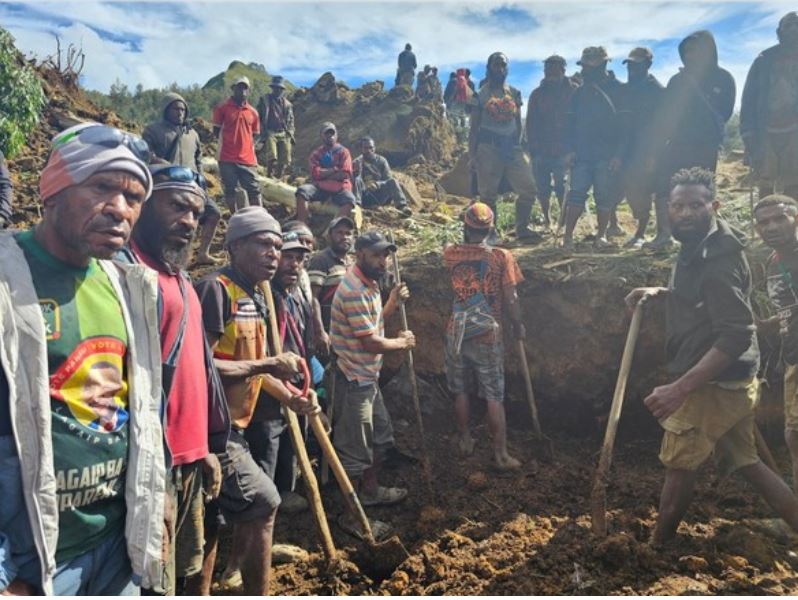Around 2000 people feared buried in Papua New Guinea landslide
Around 2000 people are feared to have been buried by the massive landslide that hit Papua New Guinea, citing the country's National Disaster Centre. Read further on Dynamite News:

Port Moresby (Papua New Guinea): Around 2000 people are feared to have been buried by the massive landslide that hit Papua New Guinea, citing the country's National Disaster Centre.
The rescuers have been struggling to find any survivors in the remote region.
The landslide occurred in the mountainous Enga region in northern Papua New Guinea on Friday last week and the latest figure is a sharp rise from earlier estimates.
Soon after the disaster occurred, the United Nations confirmed that as many as 100 people may have died.
Also Read |
Deadly landslide in Papua New Guinea kills over 100 people
However, it was later revised up to 670, according to estimates from the Chief of Mission for the International Organisation for Migration (IOM) in the country.
But that may now be a major underestimate, according to the latest projection from Papua New Guinea's disaster agency.
"The landslide buried more than 2000 people alive, caused major destruction to buildings, food gardens and caused major impact on the economic lifeline of the country," Lusete Laso Mana, Acting Director of the National Disaster Centre, said in a letter to the UN.
"The situation remains unstable as the landslip continues to shift slowly, posing ongoing danger to both rescue teams and survivors alike," he said, adding that the main highway to the area had been completely blocked by the landslide.
Also Read |
More than 30 killed in Uganda landslides
"Following the inspection conducted by the team, it was determined that the damages are extensive and require immediate and collaborative actions from all players," Mana said.
The landslide hit the remote village of Kaokalam, about 600 kilometres (372 miles) northwest of the capital Port Moresby, at approximately 3 am local time on Friday, leaving a scar of debris that humanitarian workers said was as big as four football pitches.
 Dynamite News
Dynamite News 